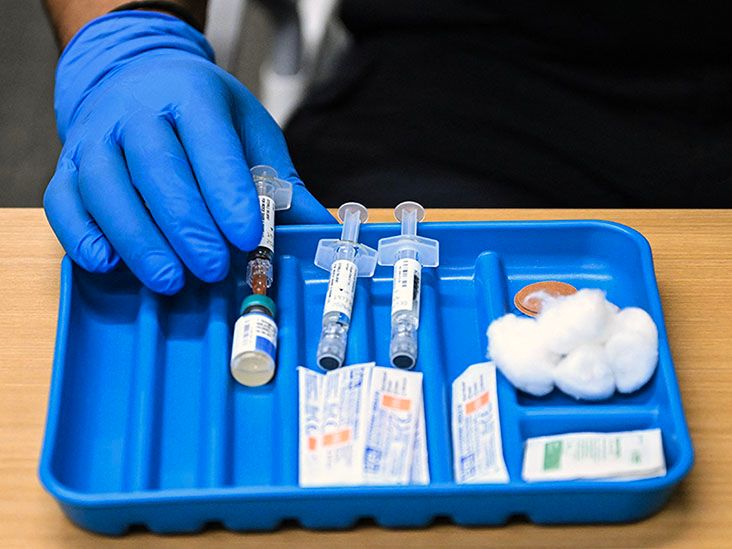Philadelphia-positive acute lymphoblastic leukemia (Ph+ ALL) is a subtype of acute lymphoblastic leukemia (ALL). The main treatments for Ph+ ALL are tyrosine kinase inhibitors such as imatinib.
ALL is a type of cancer that affects the blood and bone marrow. Symptoms of Ph+ ALL are generally similar to other types of ALL, but genetic tests can help identify the condition.
Read on to learn more about Ph+ ALL. This article looks at symptoms and causes, how doctors diagnose the condition, treatment options, and more.
Symptoms of Ph+ ALL are usually the same as those for other types of ALL. They develop because excess blast cells in the bone marrow mean there is insufficient room for other cells.
Symptoms of ALL can include:
- fatigue
- easily bruising or bleeding
- frequent infections
- unexplained weight loss
- swollen lymph nodes
- shortness of breath
- pale skin
- fever or high temperature
It is important to note that these symptoms can occur due to other conditions. A person needs to contact their doctor for an accurate diagnosis if they experience any of these symptoms.
Learn more about how leukemia can affect the body.
Ph+ ALL develops due to an atypical version of chromosome 22, which is the Philadelphia chromosome.
It
This tyrosine kinase can then cause the uncontrollable growth of immature white blood cells, which then build up in the bone marrow and blood.
Numerous tests are necessary to diagnose ALL and its subtypes. According to the Leukemia & Lymphoma Society, doctors can classify around 75% of ALL cases in adults into subtypes because of genetic mutations and chromosomal abnormalities.
Tests a doctor may order to assist with diagnosing Ph+ ALL include:
- a complete blood count with differential to measure the amount of red blood cells, white blood cells, and platelets in the blood
- bone marrow aspiration and biopsy, usually from the hip bone
- biomarker testing, which involves looking for changes in chromosomes, genes, and proteins
Biomarker tests that can help confirm the diagnosis include:
- immunophenotyping, which involves looking at the proteins on the surface of cells
- cytogenetic analysis, or karyotyping, which involves looking for atypical changes in chromosomes
- fluorescence in situ hybridization (FISH), which involves looking for atypical changes in genes or chromosomes in leukemia cells
- polymerase chain reaction (PCR), which involves looking for genetic mutations or changes in chromosomes that are too small to see under a microscope
- next-generation sequencing, which involves looking for genetic mutations in ALL cells
The main treatments for Ph+ ALL are tyrosine kinase inhibitors (TKIs). They block the tyrosine kinase protein, which causes immature white blood cells to build up in the bone marrow and blood.
A person will usually receive this treatment in combination with chemotherapy.
Types of TKIs include:
- imatinib (Gleevec)
- bosutinib (Bosulif)
- dasatinib (Sprycel)
- imatinib (Gleevec)
- nilotinib (Tasigna)
- ponatinib (Iclusig)
The outlook for a person with Ph+ ALL has significantly improved since the introduction of TKIs.
Targeted therapy drugs blinatumomab and ponatinib may also help.
Ph+ ALL is more common in adults than in children. It accounts for around 1% to 2% of all pediatric ALL cases and comprises around 30% of all ALL cases in adults.
Learn more about ALL in adults.
What are the main goals of Ph+ ALL treatment?
The main goal of Ph+ ALL treatment is to put the condition into remission. The aim is to reach molecular remission where there is no sign of leukemia in the bone marrow.
What does achieving “molecular remission” mean in Ph+ ALL treatment?
Molecular remission
How do tyrosine kinase inhibitors (TKIs) affect Ph+ ALL treatment?
TKIs block an enzyme called tyrosine kinase. The enzyme causes immature white blood cells to grow and divide uncontrollably, which in turn can build up in the blood and bone marrow, taking room away from other blood cells.
By blocking the enzyme, TKIs prevent the buildup of immature white blood cells and allow more room for other blood cells.
What role does chemotherapy play in current Ph+ ALL treatment regimens?
While TKIs are the main treatments for Ph+ ALL, a person will usually receive these as part of chemotherapy treatment. TKIs block the tyrosine kinase enzyme, while chemotherapy works to kill the cancer cells.
Philadelphia-positive acute lymphoblastic leukemia (Ph+ ALL) is a type of acute lymphoblastic leukemia (ALL). It can affect children, but it is more common in adults.
Ph+ ALL occurs when the BCR-ABL1 fusion gene triggers the production of too much tyrosine kinase, which in turn causes immature white blood cells to grow and divide uncontrollably.
Symptoms of Ph+ ALL can include fatigue, easy bruising and bleeding, unexplained weight loss, frequent infections, and more. Doctors diagnose the condition using a series of tests, such as blood tests, bone marrow aspiration and biopsy, and biomarker tests.
Tyrosine kinase inhibitors (TKIs) are the main treatments for Ph+ ALL, usually in combination with chemotherapy. A doctor may also recommend targeted therapy drugs.


